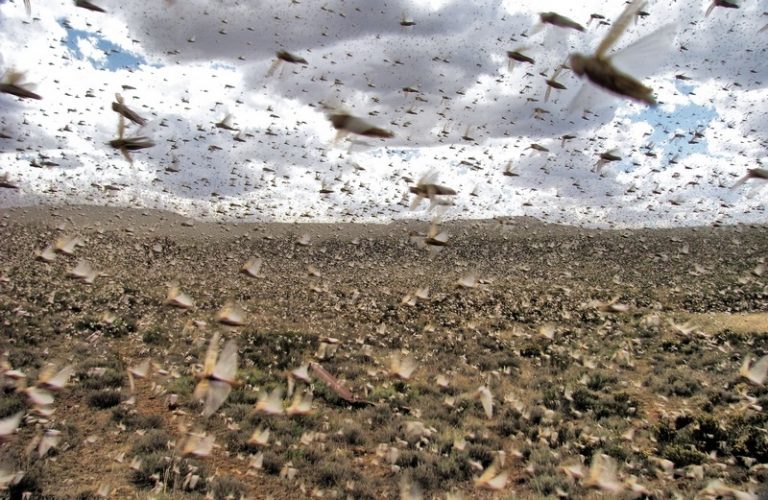
More parts of India are under locust attack now. The migratory pests have invaded eastern Maharashtra where four to five villages have come under attack from the locusts.
The locusts are known for feasting on all sorts of plants and standing crops.
The district and agriculture department personnel in Maharashtra have initiated chemical spraying on crops and vegetation to save them from the migratory pests.
“The swarm of desert locusts entered the state from Amravati district. It then went to Wardha and now it is in Nagpur’s Katol tehsil,” Joint director of agriculture department, Ravindra Bhosale, told news agency PTI.
He further said that locusts do not travel in the night. The migratory pests travel during the day time and fly as per the wind direction. “Locusts are very dangerous to all types of vegetation. They feed on green leaves and known for devouring crops spread across on acres of land,” he added.
In Uttar Pradesh’s Mathura, the district administration has formed a task force to deal with any potential locust attack in the district. The administration decided to go for early preparation keeping in view the growing locust threat.
After crossing Pakistan, swarms of locusts entered India through Rajasthan on April 11. On Monday, locusts entered some residential areas of the Jaipur city.
Mathura district magistrate said 200-litre Chloropyriphos has been kept as a reserve and its sellers in the area were advised not to supply the chemical outside the district.
He said over a dozen tractors mounted with sprayers were kept on standby and fire brigade department asked to remain alert.
The Union environment ministry had already warned in a statement last week that locust swarms have entered Rajasthan, Punjab, Haryana and Madhya Pradesh. There is an alert for national capital Delhi.
It said Rajasthan is the most affected state and added the swarm has entered the country earlier than expected.
The United Nations has warned that armies of locusts swarming across continents pose a “severe risk” to India’s agriculture this year.